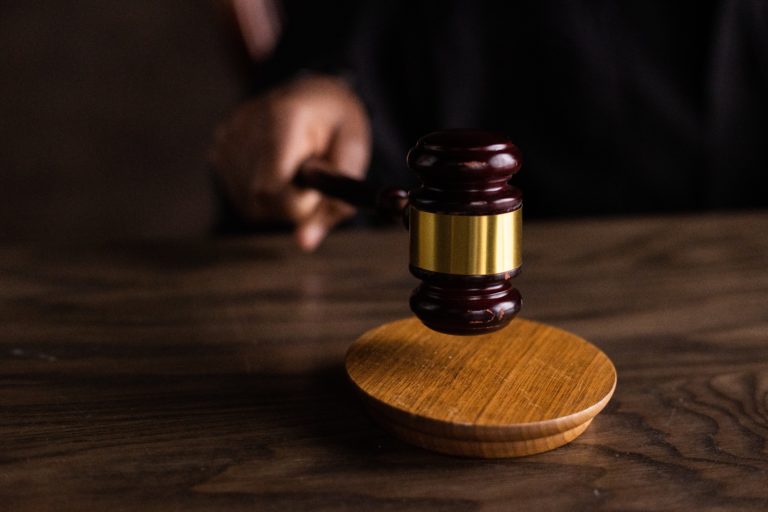
Applications for
permanent residency must include a lot of
documentation. USCIS and Department of State require documentation of your birth. Ideally, this is achieved by submitting your birth certificate with your application. A birth certificate establishes the applicant’s country of citizenship and familial relationships, which helps to show eligibility for permanent residency. This also helps confirm the applicant’s identity. However, there are some considerations you should make before submitting your birth certificate with your adjustment of status.
Birth Certificate Requirements
Both U.S. Citizenship & Immigration Services (which grants permanent residency to nationals already in the U.S.) and the Department of State (which grants permanent residency to nationals outside the U.S.) both use the when assessing whether the applicant’s birth certificate is sufficient.
Generally, the U.S. immigration authorities consider a birth certificate sufficient and will accept it if it contains the following things. It must include: your full name, your parents’ full names, the date of your birth, and the place of your birth. Finally, the birth registration date must be within a reasonable time; generally, about one month from the date of your birth. If there is more than a month between the registration and your birth, the authorities might be expecting additional evidence to verify the details of your birth.
If your birth certificate is not in English, you must also submit—along with your original birth certificate—a translated copy of your birth certificate. The translation must include a certification by the translator that they are fluent in both English and the language that appears on your birth certificate. Anyone who is fluent in both languages and over the age of eighteen may translate and certify your birth certificate. There are also translation services available if you do not know someone who can translate for you.
There are a number of situations, however, where birth certificates meeting these strict requirements cannot be obtained. Such includes birth in a year before such records were not regularly kept, birth in a country without uniform standards for registering birth, records lost to war or regime change, etc.
Such challenges, however, do not mean you cannot obtain permanent residency in the U.S. These issues are fairly common and can be overcome with the right evidence.
Certificate of Non-Availability
If your birth certificate is non-compliant (by, for example, late registration or not including your parents’ full names), you can still meet the requirements by submitting it together with “secondary evidence,” as discussed in more detail below. If your birth certificate is unavailable, though, you must first demonstrate to the satisfaction of the immigration authorities that it is indeed unavailable – not just that you lost the original.
In general, this can frequently require submitting a “Certificate of Non-Availability,” which is essentially a certificate from the proper government authority that confirms that your birth was never officially recorded. The certificate or letter must state that the office is unable to issue a birth certificate and the reason why it cannot issue one. Typically, a birth certificate cannot be issued because your birth was never registered, or the record of it was destroyed. For example, the U.S. Department of State’s Reciprocity Schedule for the country of India indicates that individuals born before April 1, 1970, generally do not have birth certificates. This means that the U.S. government expects these individuals to first obtain a Certificate of Non-Availability and then also submit secondary evidence establishing the details of their birth.
Affidavits of Birth
If your birth certificate is unavailable and you can properly establish its unavailability, or if your existing birth certificate does not meet the government’s strict requirements, then the next step is to also submit “secondary evidence.” The most readily available form of secondary evidence is two sworn and notarized affidavits – such as from mom and dad. The affidavits must be signed and sworn in front of a notary. The person testifying about your birth must have direct knowledge of your birth (i.e. be older than you). Accordingly, your parents would be in the best position to provide this testimony. However, if that is not possible, anyone who meets the above criteria can provide your birth affidavits.
The process of getting a document notarized differs depending on where you are getting it done. In general, the affiant (person making the declarations in the affidavit) must find a notary and sign the affidavit in front of the notary. The notary will then notarize the document, which just means they have verified your identity and that you are indeed the person who signed the paper. It is important to bring a valid form of identification, the affidavit to be notarized, and any payment that may be required for the notarial services.
Other Secondary Evidence
If affidavits are not available, other secondary evidence can be submitted in lieu of birth certificate as evidence of one’s place and date of birth. It can also be submitted to support birth certificates that do not meet requirements and the applicant cannot get birth affidavits. It is always best to submit a conforming birth certificate with your adjustment of status application. The next best option, if your birth certificate does not meet USCIS requirements, is to submit your birth certificate and two birth affidavits. However, in some cases only secondary evidence may be available.
Secondary evidence supports or corroborates the facts on your birth certificate or of your birth in general. Therefore, secondary evidence should indicate the date of your birth and the place of birth, most importantly. What types of secondary evidence could be used generally depend on the information set forth on the DOS Reciprocity Schedule for your country of birth. Religious and school records often make good secondary evidence of your birth. This can include school registration papers or baptismal or other religious certificates. Medical records can also be good secondary evidence, depending on the country.
Finally, if the government is requesting additional evidence to prove your familial relationship (such as to prove you are the biological father of your U.S. citizen child or to prove a sibling-to-sibling relationship), a DNA test is also a powerful tool that can be used. These tests have come a long way in recent years and are becoming more and more affordable as well. There are various services available that would meet the U.S. government’s standards.
Contact Today to Discuss Your Immigration Needs
Naturally, this is a lot of information to take in. It is important to remember the purpose of requiring your birth certificate—to identify the date and place of your birth and further corroborate your identity. Ideally, your birth certificate will check all USCIS requirements, and you can simply submit it with your adjustment applications. However, USCIS is aware that this is often not the case. Luckily, there are many others ways to confirm the facts of your birth.
The Ohio immigration lawyers of Shihab Burke, LLC, Attorneys At Law understand how difficult it can be to wait years to obtain a visa and subsequently become a US citizen. With the assistance of our lawyers, you will not need to worry about whether you are taking the proper steps to reach your immigration goals.
Our firm has offices located in Columbus and Dublin, Ohio, and Michigan, but we provide legal representation to clients nationwide. To speak with an Ohio immigration lawyer, contact Shihab Burke, LLC, Attorneys At Law today by calling (866) 665-0001, emailing
[email protected] or by completing an online
form.
 Applications for permanent residency must include a lot of documentation. USCIS and Department of State require documentation of your birth. Ideally, this is achieved by submitting your birth certificate with your application. A birth certificate establishes the applicant’s country of citizenship and familial relationships, which helps to show eligibility for permanent residency. This also helps confirm the applicant’s identity. However, there are some considerations you should make before submitting your birth certificate with your adjustment of status.
Applications for permanent residency must include a lot of documentation. USCIS and Department of State require documentation of your birth. Ideally, this is achieved by submitting your birth certificate with your application. A birth certificate establishes the applicant’s country of citizenship and familial relationships, which helps to show eligibility for permanent residency. This also helps confirm the applicant’s identity. However, there are some considerations you should make before submitting your birth certificate with your adjustment of status.






